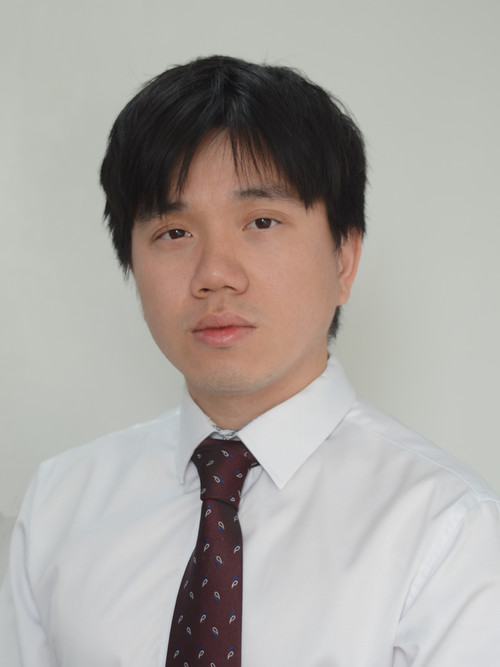Molecular, Preclinical & Nanomedicine
Our scientists work on novel treatment of various types of cancer using models to optimize and develop MRI sequences. Image-guided treatments focus on multifunctional carriers of therapeutic drugs, targeted and combination cell therapy and immunotherapy utilizing natural killer and dendritic cells. These teams of investigators collaborate with clinicians, medical scientists, biologists and imaging professionals to translate these new cancer therapy approaches into diagnostic imaging technique and treatment in the clinical setting.
Dong-Hyun Kim, PhD
Associate Professor of Radiology (Basic and Translational Radiology Research)
Bio
Image-guided medicine is rapidly growing to improve treatment regimens and advancing medical imaging, including magnetic resonance imaging (MRI), computed tomography (CT), radiography, ultrasound, positron emission tomography (PET), and single photon emission computed tomography (SPECT). A combination of modern nanoplatforms with high performance in imaging and therapeutics may be critical to improve medical outcomes.
One of emerging fields is image-guided therapy using various nanoparticles. Therapies include basic bench, preclinical in vitro/in vivo and clinical researches combining synthesis of multifunctional nanoparticle and tracking/navigation tools to improve accuracy and outcomes of the therapeutics. Most of the emerging interventional technique such as heat-activated targeted drug delivery, image guided ablation (microwave or HIFU), percutaneous injection gene/bacteria therapy, transcatheter treatments for tumor specific local therapy, serial biopsy, thrombolytic therapy, and so on, can be combined with nanotechnology in clinic.
My research engages in careful design/selection/synthesis of multifunctional imaging/therapeutic nanomaterials with therapeutic agents will be critical for the translational optimization these new image guided medicine techniques. The DHKIM Lab for Biomaterials of Image Guided NanoMedicine has focused on developing various therapeutic/imaging carriers for the treatment of various cancers. Micro/Nanoparticles and their hybrid derivatives have been exploited as vectors for drug/therapeutic delivery and molecular imaging agents of MRI, CT, ultrasound and luminescent/fluorescents. We are working closely with clinicians, medical scientists, biologist and imaging professionals to translate new therapeutic approaches using multifunctional carriers and diagnostic imaging technique to the clinical setting.
Lab Manager: Xiaoke Huang
For more information on my research, please view my Feinberg School of Medicine faculty profile.
Profile, Grants, & Publications
View my profile, grants, & publications on Northwestern Scholars.
Lara Leoni, PhD
Research Associate Professor of Radiology
Bio
Dr. Leoni is an accomplished imaging scientist and the Co-Director of the Preclinical Molecular Imaging Lab within the Feinberg School of Medicine with a focus on multi-modality imaging.
With over 20 years of experience in leading research focused on Computed Tomography, Positron Emission Tomography, Single Photon Emission Computed Tomography, Fluorescence, Bioluminescence, Ultrasound and MR imaging, Dr. Leoni believes in extracting anatomical and functional information unique to each modality and imaging method to visualize, track, and measure biological processes at the molecular and cellular levels to support discoveries in drug discovery, disease modeling, and the development of new therapies.
She particularly enjoys working with Core facility users and investigators to support and enhance their research projects, with the overarching goal of promoting FSM’s mission to impact the practice of medicine through discovery and education to improve human health.
Her research interest focuses on application of commercial and novel radiotheranostic compounds. Radiotheranostics combine molecular imaging diagnostic with targeted radionuclide therapy with the potential to treat tumors with minimal adverse effects.
Dr. Leoni expertise extend to operations and management. She has led the growth and development of preclinical imaging facility overseeing all operations in cross-functional environments, which included overseeing budget and financial operations, supply chain, a diverse team of scientists and technicians, and coordinating, planning and executing a rich portfolio or research projects.
She participates in many national professional groups focused on molecular imaging and on management of molecular imaging core facilities.
For more information, please view my Feinberg School of Medicine faculty profile.
Profile, Grants, & Publications
View my profile, grants, & publications on Northwestern Scholars.
Daniele Procissi, PhD
Research Professor of Radiology (Basic and Translational Radiology Research)
Bio
My research projects focuses on preclinical Molecular Imaging using MRI, PET and CT.
For more information on my research, please view my Feinberg School of Medicine faculty profile.
Profile, Grants, & Publications
View my Profile, grants, & publications on Northwestern Scholars.
Bo Zhou, PhD

Assistant Professor of Radiology
Bio
Dr. Zhou received his PhD in Biomedical Engineering from Yale University with the highest PhD honor of the Harding Bliss Prize. He also holds a Master's in Computer Vision from Carnegie Mellon University and a Master's in Biomedical Engineering from Case Western Reserve University. His research mainly focuses on AI for multi-modal medical imaging, especially in PET, SPECT, MRI, and CT.
His areas of research are Radiology; Radiology, X-ray, CAT Scan, Medical Imaging; Radionuclide Imaging; Cardiovascular Imaging; Medical Informatics; Bioinformatics; Big Data; Quantitative MRI; Radiation Oncology; Preventive Medicine; Pathology; Oncology; Translational Research
Profile, Grants, & Publications
For more information on my research, please view my Feinberg School of Medicine faculty profile.


